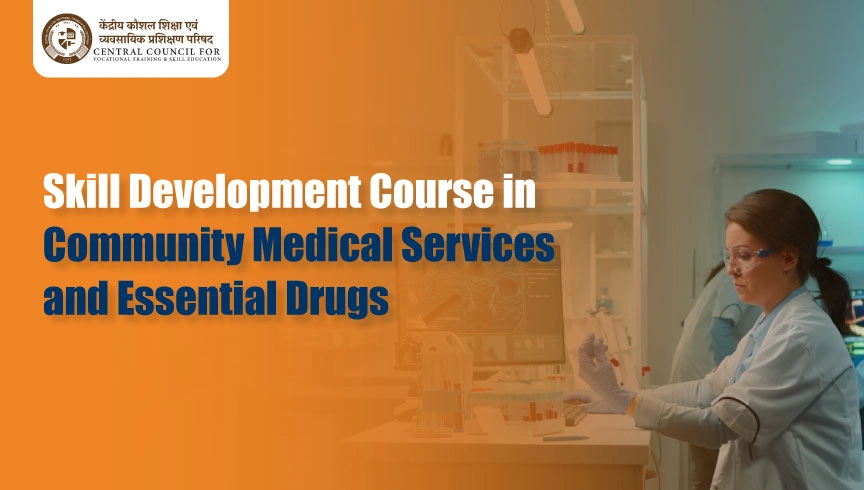- +91 8595350621
- info@ccvte.org
- C4/97B, Keshav Puram, Delhi-110035
Patient Care Management

Skill Development Program in Patient Care Management
Patient care management is a program designed to provide comprehensive health services that aid patients in managing their health. It covers various activities, from primary care practices like scheduling appointments to short-term case management and chronic illness care management. Care management plans improve care coordination, enabling patients to better manage their overall healthcare needs by following straightforward instructions from trusted clinicians and caregivers. This approach fosters the development of healthcare models that deliver optimal treatment methods and empower patients to take ownership of their specific healthcare goals. For chronic illnesses such as diabetes, high blood pressure, heart disease, and other long-term health conditions, patient care management is essential. It allows healthcare providers to manage these conditions effectively using a comprehensive strategy and community resources, ensuring ongoing attention to patient’s health and well-being even outside the doctor's office or hospital. Care management focuses on practice-based approaches to enhance the health of populations with complex or chronic medical issues. To support these efforts, healthcare organizations are increasingly adopting care management software to streamline operations. These solutions can be scaled to meet the needs of large healthcare systems or downsized for smaller primary care clinics, with EHR integration being crucial in all cases.
Why did you choose Patient Care Management from CCVTE?
- A skill development course in Patient Care Management is specially designed for students aiming for a career in healthcare management and patient care.
- The course provides practical skills and knowledge required in the healthcare field.
- Upon completion, students can find work opportunities in government and private hospitals.
- Key highlights of the course include its flexibility and affordability, allowing students to complete it more quickly and at a lower cost compared to traditional full-time degree programs.
- The curriculum includes Patient Care Management covering essential topics such as patient health management, care coordination, diagnostic methods, and emergency care.
- This comprehensive training offers a practical, cost-effective pathway to a rewarding career in healthcare management.
Specializations in Patient Care Management
- Chronic Disease Management
- Geriatric Care Management
- Pediatric Care Management
- Mental Health Care Management
- Oncology Care Management
- Palliative and Hospice Care Management
- Rehabilitation Care Management
- Cardiovascular Care Management
- Home Health Care Management
- Women's Health Care Management
Career Opportunities
A skill development course in nursing opens the door to diverse career opportunities in paramedical. Career opportunities in Patient Care Management include roles like Care Manager, Case Manager, Chronic Care Manager, and Geriatric Care Manager. These positions involve coordinating patient care, managing chronic conditions, and improving health outcomes. Professionals work in hospitals, clinics, and home health settings, requiring relevant qualifications and skills.
- Care Manager
- Case Manager
- Chronic Care Manager
- Geriatric Care Manager
- Patient Navigator
- Palliative Care Coordinator
- Clinical Coordinator
- Oncology Care Coordinator
- Health Coach
- Home Health Care Manager
- Behavioral Health Care Manager
- Population Health Manager
- Insurance Case Manager
- Healthcare Consultant
- Health Informatics Specialist
Syllabus
|
3 Month |
6 Month |
1 Year |
2 Year |
|
Introduction to Patient Care Management |
Introduction to Patient Care Management |
Introduction to Patient Care Management |
Introduction to Patient Care Management |
|
Healthcare Systems and Policies |
Healthcare Systems and Policies |
Healthcare Systems and Policies |
Healthcare Systems and Policies |
|
Patient Assessment and Care Planning |
Patient Assessment and Care Planning |
Patient Assessment and Care Planning |
Patient Assessment and Care Planning |
|
Practical Training and Internships |
Chronic Disease Management |
Chronic Disease Management |
Chronic Disease Management |
|
Clinical Communication Skills |
Clinical Communication Skills |
Clinical Communication Skills |
|
|
Care Coordination and Case Management |
Care Coordination and Case Management |
Care Coordination and Case Management |
|
|
Emergency and Acute Care Management |
Emergency and Acute Care Management |
Emergency and Acute Care Management |
|
|
Practical Training and Internships |
Geriatric Care Management |
Geriatric Care Management |
|
|
Palliative Care |
Palliative Care |
||
|
Health Informatics and Technology |
Health Informatics and Technology |
||
|
Behavioral Health Management |
Behavioral Health Management |
||
|
Practical Training and Internships |
Quality Improvement in Healthcare |
||
|
Legal and Ethical Issues in Patient Care |
|||
|
Population Health Management |
|||
|
Project and Evaluation |
|||
|
Practical Training and Internships |
Top Hiring Opportunities in Patient Care Management
- Hospitals
- Primary Care Practices
- Managed Care Organizations
- Home Health Care Agencies
- Long-Term Care Facilities
- Behavioral Health Centers
- Hospice and Palliative Care Providers
- Health Insurance Companies
- Public Health Departments
- Academic and Research Institutions
- Nonprofit Health Organizations
Other Paramedical Courses Provided by CCVTE
Frequently Asked Questions
To be eligible for the Patient Care Management program, applicants generally need a high school diploma or equivalent, with coursework in health sciences or related fields. Proficiency in the language of instruction is required. Additional criteria may include relevant work experience, academic transcripts, letters of recommendation, and a personal statement. Specific requirements can vary by institution.
The duration of the Patient Care Management program typically ranges from 3 months to 2 years. Short-term certificate programs may last a few months, while diploma and advance diploma programs usually take 1 to 2 years. The duration includes both theoretical coursework and practical training in patient care and management skills.
To apply for the Patient Care Management program at CCVTE, visit the CCVTE website and complete the online application form. Submit required documents, including academic transcripts and a personal statement. Ensure you meet the eligibility criteria and prepare for any entrance exams or interviews if applicable. Detailed instructions are available on the CCVTE website.
CCVTE offers flexible study options for the Patient Care Management program, including online classes and part-time schedules. These options enable students to balance their studies with work or personal commitments, providing access to course materials, virtual lectures, and practical training in a more adaptable format.
Key roles include care managers, nurses, physicians, social workers, and sometimes patient advocates. These professionals work together to provide comprehensive care and address all aspects of a patient’s health and well-being.



